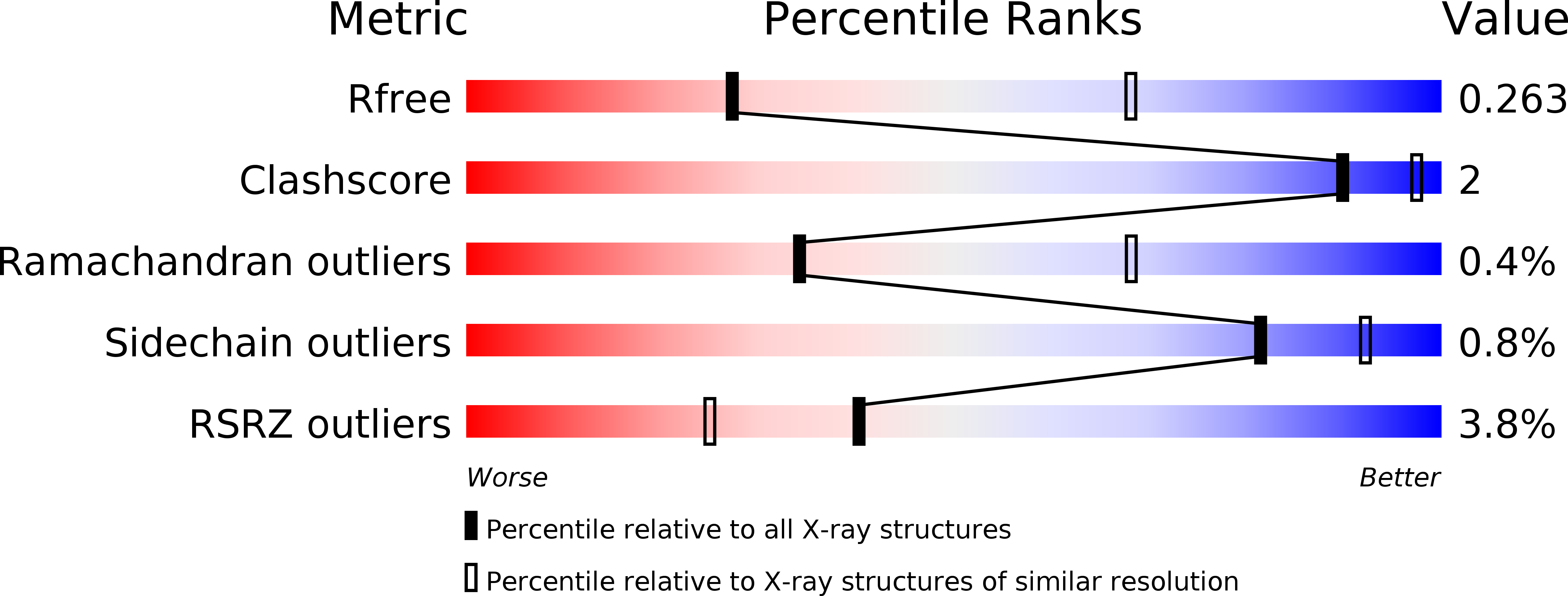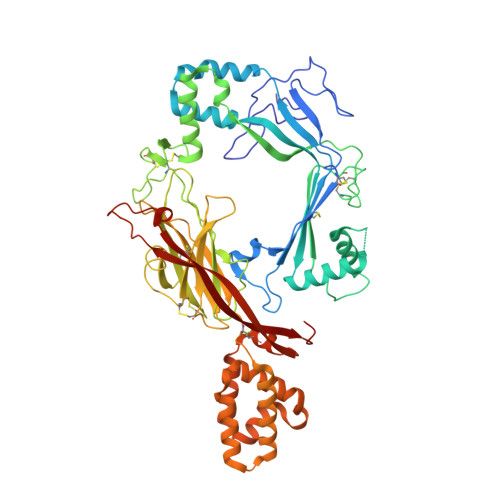Structure of astrotactin-2: a conserved vertebrate-specific and perforin-like membrane protein involved in neuronal development.
Ni, T., Harlos, K., Gilbert, R.(2016) Open Biol 6
- PubMed: 27249642
- DOI: https://doi.org/10.1098/rsob.160053
- Primary Citation of Related Structures:
5J67, 5J68, 5J69 - PubMed Abstract:
The vertebrate-specific proteins astrotactin-1 and 2 (ASTN-1 and ASTN-2) are integral membrane perforin-like proteins known to play critical roles in neurodevelopment, while ASTN-2 has been linked to the planar cell polarity pathway in hair cells. Genetic variations associated with them are linked to a variety of neurodevelopmental disorders and other neurological pathologies, including an advanced onset of Alzheimer's disease. Here we present the structure of the majority endosomal region of ASTN-2, showing it to consist of a unique combination of polypeptide folds: a perforin-like domain, a minimal epidermal growth factor-like module, a unique form of fibronectin type III domain and an annexin-like domain. The perforin-like domain differs from that of other members of the membrane attack complex-perforin (MACPF) protein family in ways that suggest ASTN-2 does not form pores. Structural and biophysical data show that ASTN-2 (but not ASTN-1) binds inositol triphosphates, suggesting a mechanism for membrane recognition or secondary messenger regulation of its activity. The annexin-like domain is closest in fold to repeat three of human annexin V and similarly binds calcium, and yet shares no sequence homology with it. Overall, our structure provides the first atomic-resolution description of a MACPF protein involved in development, while highlighting distinctive features of ASTN-2 responsible for its activity.
Organizational Affiliation:
Division of Structural Biology, Wellcome Trust Centre for Human Genetics, University of Oxford, Roosevelt Drive, Oxford OX3 7BN, UK.

















